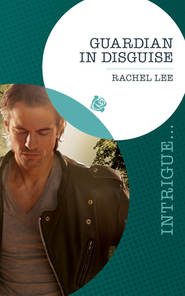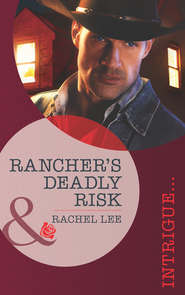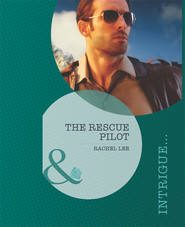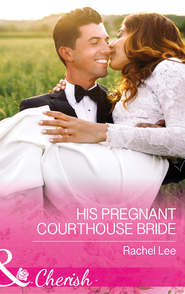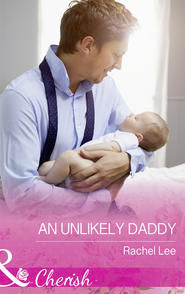По всем вопросам обращайтесь на: info@litportal.ru
(©) 2003-2024.
✖
Something Deadly
Автор
Год написания книги
2018
Настройки чтения
Размер шрифта
Высота строк
Поля
After the sandwiches were made, they sat at his kitchen table, a piece that looked almost as old as the island’s history.
“Where did you get this?” she asked him, running her palm over the scarred surface. “It’s beautiful.”
“At an estate sale, when I first got here. The auctioneer said it had been used in the kitchen for more than a hundred years.”
“It’s gorgeous. Did you refinish it?”
“A little sanding and a lot of oil. It was pretty dried out when I bought it.”
“I’m glad you didn’t sand it smooth.”
“That would have been a crime.” He paused from his sandwich and looked at her, his eyes saying the small talk was over. “So what’s up?”
“I’m not sure. I just know that today I treated eighteen dogs who had chewed themselves raw.”
“Mange?”
She shook her head. “No way. This was nervous chewing. I took samples for testing, but this isn’t mange. These dogs were fine until the barkingfest last night. Afterward they started chewing themselves raw. God knows how many others have done the same thing but haven’t been brought to my attention.”
He gave a low whistle and sat back, sandwich forgotten. “What could have scared them that much?”
“I don’t know.” She picked at the crust from her bread. “Maybe I’m wrong. Maybe it isn’t anxiety. Maybe there’s some link with whatever killed Cart.”
His head cocked, and his face darkened. He reached out for her hand, covering it and squeezing firmly. “That call I got last night? It was about Marilyn Shippey.”
Markie drew a breath so sharp it sounded like a drowning person’s last gasp. “Oh, my God,” she whispered. Her face turned as white as chalk. “I’d heard she got sick, but…not…”
“Unfortunately, yes. I did the post last night. Same kind of deterioration Cart showed.”
“Oh, sweet Lord.” She closed her eyes, clearly trying to absorb this new horror. Her hand turned over and she linked her fingers with his. “I knew Marilyn.” Her eyes popped open. “Where’s Shadow?”
“Their dog?”
She nodded.
“CDC quarantined him. He was chewing his leg, too.”
“Oh, my God,” she said again.
Silence stretched between them for long minutes, a silence filled with foreboding. As if he sensed it, Kato sat up and put his head on Markie’s lap. So naturally that she probably didn’t even realize she was doing it, she began to rub his scruff.
Declan finally spoke, needing to brush away the chilly cobwebs of disquiet that were trying to wrap around him. “You said you took samples?”
“Skin and blood from every dog.”
“I’d like CDC to look at them.”
“Of course.” She shook her head. Her color had improved a bit. “My initial microscopic exam didn’t show anything unusual. I’m waiting for cultures to grow now.”
“None of the owners were sick?”
“None seemed to be. But they all had the same weird story about how it started last night.” She pushed aside her plate. “I’m sorry, I can’t eat. It’s just…the timing is wrong for an infectious disease. Why would they all go symptomatic at almost exactly the same time? And if it’s some chemical irritant, how did it get to them all at the same time, with some inside and some out, and none of the owners affected?”
Declan nodded, his blue eyes thoughtful. “We need an epidemiological map. Where every affected dog lives.”
“Okay. I can put that together from my files.”
He put up a hand. “First I’ll finish my sandwich…and yours, if you don’t want it. I haven’t eaten since early this morning.”
She looked at him, feeling a twinge of concern. “A lot of patients today?”
He laughed. “Actually, nary a one. I think they’re afraid of getting infected. Steve Chase even cancelled. No, I was doing some work for CDC. Questioning people. Trying to track Cart’s movements over the last couple of weeks.”
“So they do think it’s infectious.”
He shrugged. “At this point, Markie, nobody knows a damn thing. But the dogs might be a clue.”
Abel Roth scoured the spreadsheet on his computer with the eye of a falcon circling a field mouse. Hyoko Akagi would be calling in an hour, and Abel knew he would expect an answer. Renovating and shoring up Kansai International Airport—built on an artificial island in 1994 and already sinking—would be a very complex, very expensive project. Roth Financial had a solid record with venture capital, and this loan could reap vast rewards. But it carried equally vast risks. Abel Roth had no doubt he could put together the capital to fund the three-billion-dollar project, but the risk-benefit analysis was edgy.
He was in no frame of mind to deal with his prodigal son when Timothy sauntered through the door of his study and plopped himself in a chair across the desk without so much as a by-your-leave. He refused to spare the boy even a glance.
“What?” Tim said, as if reading his father’s mind. “No fatted calf?”
“You’ve had your share of the fatted calf, and you’ve chosen to waste it.”
Tim shrugged. “That’s a matter of opinion. I built a successful business.”
Their respective ideas of business success were so far apart that the chasm couldn’t be measured. Abel was banker for the world. Timothy took tourists on fishing excursions. There was no comparison.
“I’m expecting a call from Tokyo,” Abel said. The implication was clear: I have bigger fish to fry.
“No surprise,” Tim answered. He knew he was being dismissed, but he didn’t move. It gave him pleasure to defy his father. “Have you heard about the Shippeys? Carter and Marilyn?”
Abel moved impatiently. For a man who could be carved stone in a business discussion, he was a deliberate open book with his son. “I approved the quarantine.” It was the word of a man who governed by more than mere popular vote. He waved his hand at Tim. “Your mother’s in the living room.”
Вы ознакомились с фрагментом книги.
Приобретайте полный текст книги у нашего партнера:
Приобретайте полный текст книги у нашего партнера:






